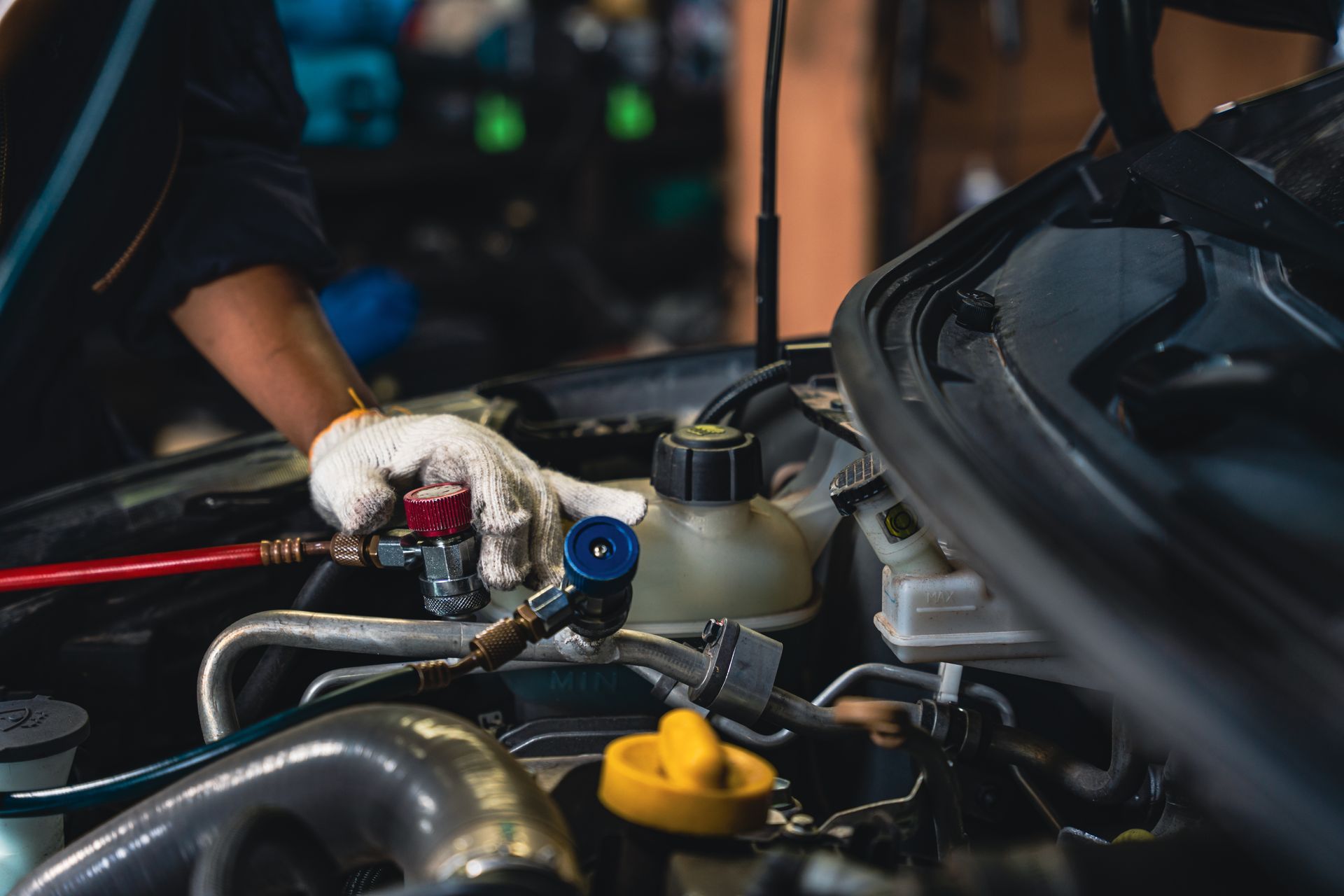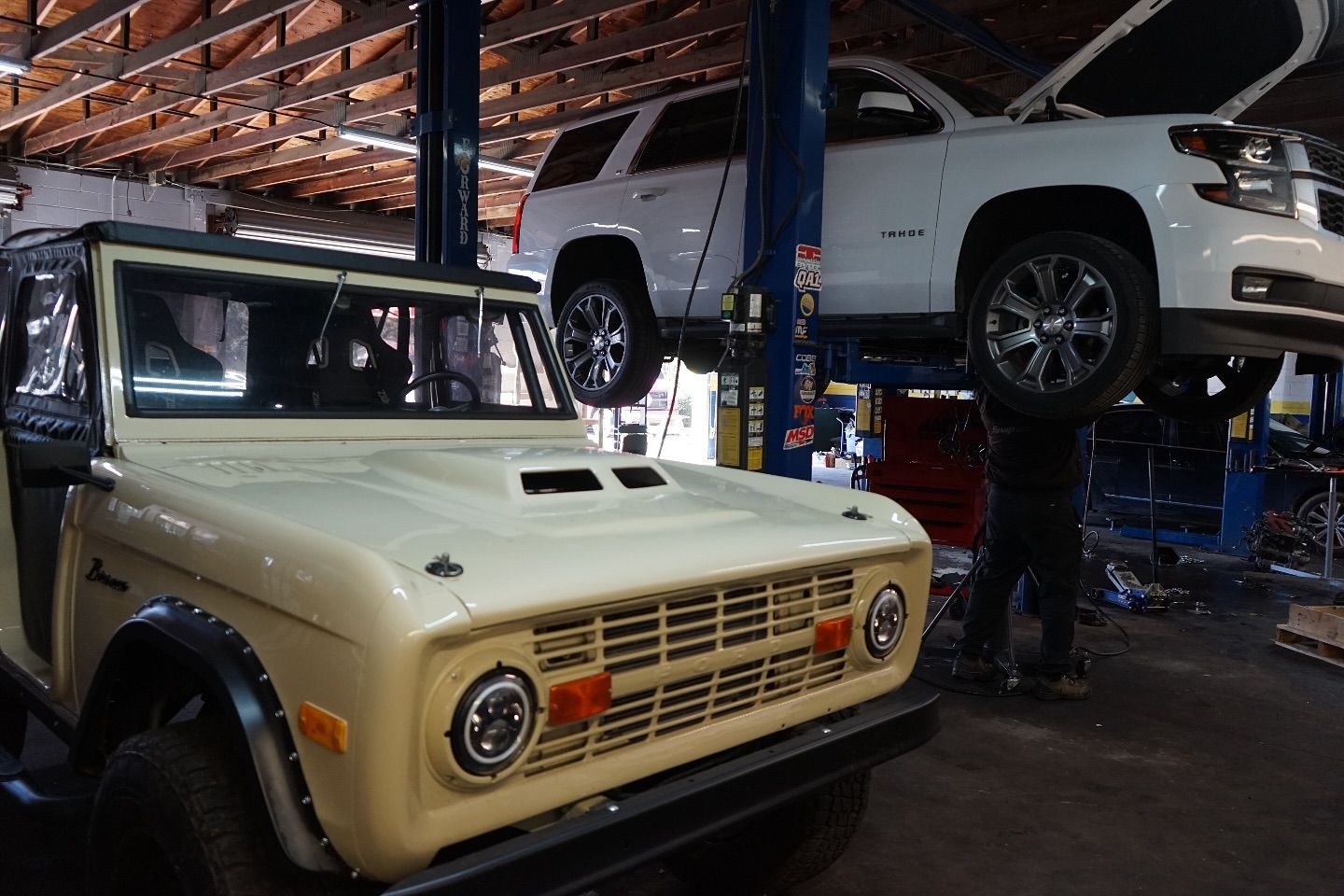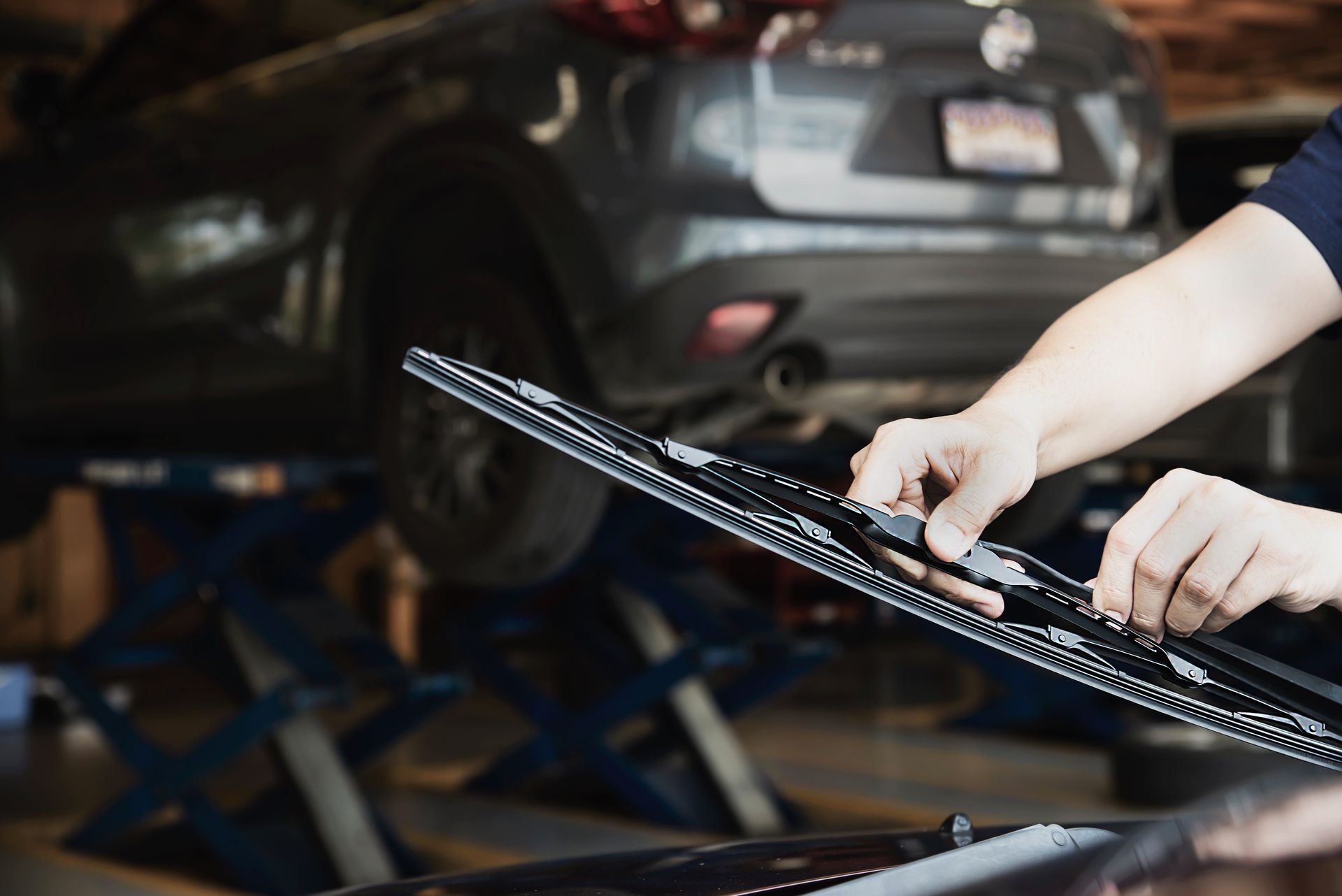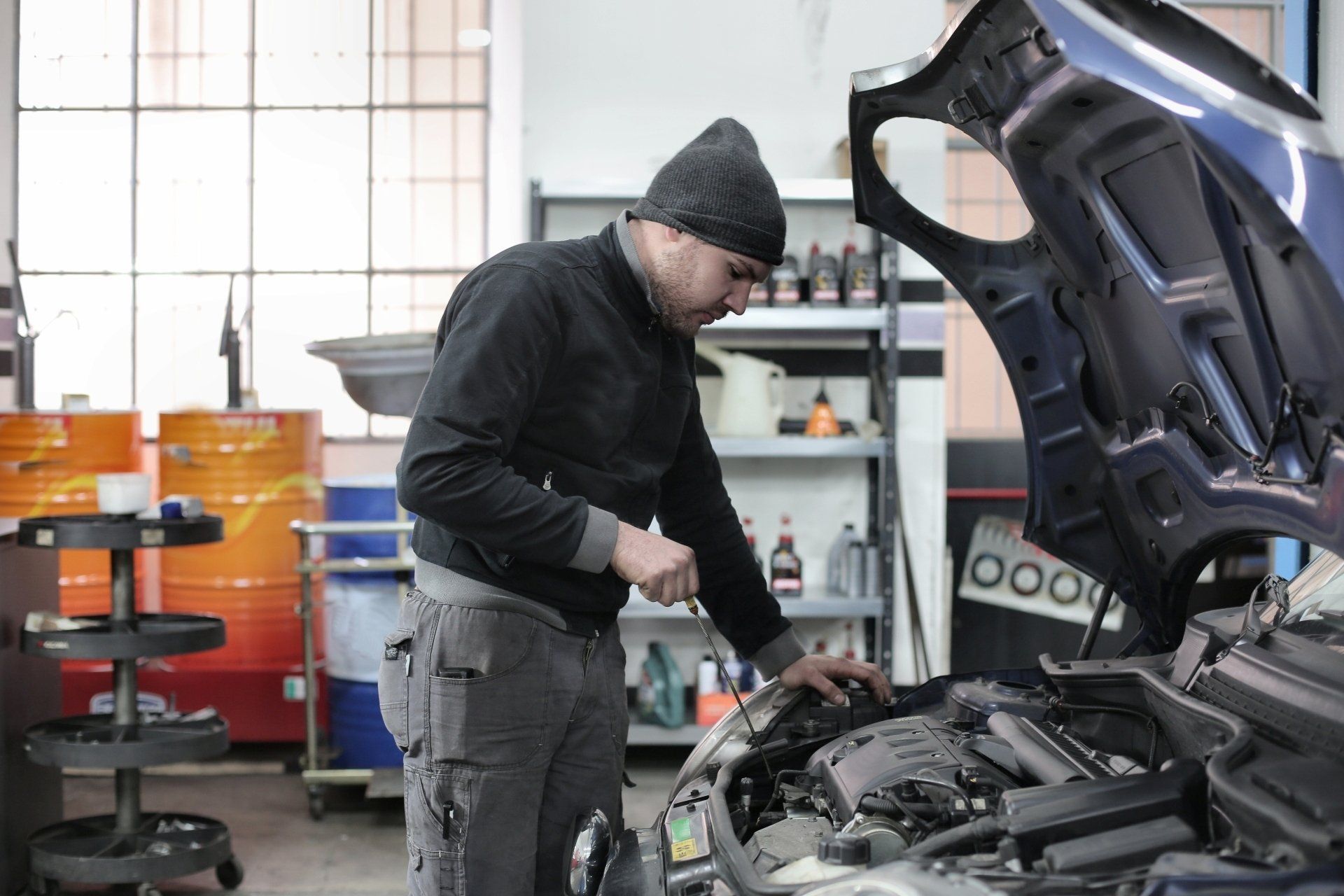How Poor Fleet Maintenance Can Harm Your Business Reputation
April 7, 2025
In business, reputation is everything. Whether you operate a small delivery company or manage a larger fleet, the condition of your vehicles plays a direct role in how your customers perceive your brand. At Garage 850 in Pensacola, FL, we’ve helped countless local businesses protect their image by keeping their fleets in peak condition—and we’ve also seen the damage that poor maintenance can cause when it’s ignored.
If you're running a fleet, your vehicles are more than just tools—they’re moving billboards for your company. So what kind of message are you sending when a vehicle breaks down on the road or shows up late to a customer site with visible mechanical issues? Let’s dive into why fleet maintenance is more than a mechanical responsibility—it’s a business necessity.
Fleet Maintenance and Brand Perception
Customers notice more than you think. A van with squealing brakes, misaligned wheels, or a check engine light flashing during a service call doesn’t just suggest poor vehicle care—it suggests poor business practices. Your fleet reflects your professionalism, punctuality, and commitment to quality.
In a service-based economy like we have here in Pensacola, FL, businesses thrive on trust and repeat customers. A poorly maintained fleet tells clients that you’re willing to cut corners—and if you’re cutting corners on vehicle care, what else might you be skimping on?
The High Cost of Vehicle Downtime
When a vehicle is out of commission, it costs more than just the price of a tow or a repair. Here’s what’s really at stake:
- Lost revenue from delayed or missed appointments
- Employee downtime while waiting for repairs
- Rental vehicle costs or rescheduled service fees
- Customer dissatisfaction and potential churn
At Garage 850, we work with businesses across Pensacola to create custom fleet maintenance plans that help minimize unexpected breakdowns and keep operations running smoothly. Scheduled upkeep isn’t just cheaper—it’s smarter.
Safety First: Protecting Your Drivers and the Public
Fleet vehicles often travel hundreds of miles a week. Without consistent maintenance, wear and tear builds up quickly—leading to increased risks of brake failure, tire blowouts, or engine issues.
Not only can these situations endanger your drivers and others on the road, but they can also expose your business to serious liability. Accidents caused by preventable vehicle issues can result in legal claims, fines, and skyrocketing insurance premiums.
By partnering with a trusted auto shop like Garage 850 in Pensacola, you ensure your vehicles meet all safety standards and DOT requirements. We inspect, document, and keep you informed every step of the way.
The SEO Side of Fleet Maintenance (Yes, It Matters)
In today’s digital-first world, customer reviews and social media mentions carry serious weight. A single post about a breakdown, late service, or smoke-belching work truck can spread fast—and it sticks around online long after the issue is fixed.
Google reviews, Yelp, Facebook groups, and even local news forums in Pensacola can all influence a potential customer’s choice. Investing in preventative maintenance helps you avoid those public pitfalls and encourages positive word-of-mouth that boosts your brand.
Key Areas of Fleet Maintenance to Prioritize
Here at Garage 850, we recommend that Pensacola business owners focus on the following maintenance categories to protect both their fleet and their reputation:
- Oil & Fluid Changes: Keeping engine oil, brake fluid, coolant, and transmission fluid fresh prevents wear and overheating.
- Brake Inspections: Regular brake checks help ensure stopping power stays sharp—especially important for delivery and service vehicles.
- Tire Rotations & Alignments: Proper tire care extends lifespan, boosts fuel efficiency, and keeps drivers safe on the road.
- Battery Health Checks: A dead battery equals downtime. Regular voltage tests prevent surprise failures.
- Diagnostic Scans: Routine engine diagnostics catch small issues before they grow into major repair needs.
- Lighting & Signal Checks: Make sure headlights, brake lights, and turn signals are all working to avoid violations and keep your fleet compliant.
Each of these areas is vital—not just for performance, but for customer confidence.
How Garage 850 Supports Local Fleet Owners
At Garage 850, we offer tailored fleet maintenance programs designed around the needs of your business. Whether you have 3 vehicles or 30, we’ll help you build a service schedule that minimizes disruptions, extends vehicle lifespan, and reduces operating costs.
Here’s what makes our Pensacola shop different:
- Fleet priority scheduling so your vehicles get back on the road fast
- Digital inspection reports that give you full transparency
- OEM-quality parts for lasting reliability
- Fleet tracking and service history management
- Flexible drop-off and pickup options for busy teams
Our team understands that every minute your vehicle is in the shop, it's not out serving your customers. That’s why we go above and beyond to deliver quick, dependable service without sacrificing quality.
Final Thoughts: Your Fleet Is Your First Impression
Reputation management isn’t just about marketing—it’s about consistency and professionalism in every customer interaction. A well-maintained fleet signals that you care about your business, your people, and your clients.
If you're a business owner in Pensacola, FL, let Garage 850 help you protect your most valuable assets—your vehicles and your reputation. Proactive maintenance is the best investment you can make in your business’s future.

For fleet operators, keeping vehicles in peak condition isn’t just about maximizing performance—it’s about protecting the bottom line. One of the simplest yet most overlooked maintenance tasks is tire rotation. At Garage 850 in Pensacola, FL, we work with fleet managers every day to help them understand how small, consistent steps—like timely tire rotations—can extend tire life, improve safety, and enhance vehicle reliability. So, how often should fleet vehicles get a tire rotation? Let’s dive into the details and explore how proper rotation practices can make a big difference for your fleet’s performance and reputation. Why Tire Rotations Matter for Fleets Tires don’t wear evenly. Depending on whether your vehicles are front-wheel drive, rear-wheel drive, or all-wheel drive, certain tires will naturally experience more stress than others. For fleet vehicles that are constantly on the road—hauling goods, transporting people, or navigating stop-and-go traffic—uneven wear can happen fast. Routine tire rotations help distribute wear more evenly across all four tires, which offers several important benefits: Longer tire life: Even wear helps delay the need for costly replacements. Improved fuel efficiency: Balanced tires reduce rolling resistance. Better handling and safety: Uneven wear can compromise traction, especially in wet or emergency braking situations. Lower maintenance costs: Avoids premature suspension and alignment issues caused by imbalanced tire wear. At Garage 850, we help Pensacola-area businesses stay on top of these essential services with tailored fleet maintenance programs that prioritize safety and performance. Recommended Tire Rotation Intervals for Fleet Vehicles In general, most auto manufacturers and tire experts recommend rotating tires every 5,000 to 7,500 miles. For fleet vehicles—especially those with heavier loads or frequent stop-and-go use—we suggest sticking to the lower end of that range. Here’s a breakdown of rotation frequency based on vehicle usage: Light-duty delivery vehicles (city routes): Every 5,000 miles Medium-duty work vans or trucks: Every 4,000–5,000 miles High-mileage highway fleet vehicles: Every 6,000–7,000 miles Emergency or specialty vehicles (e.g., utility vans, shuttle buses): Every 4,000 miles or sooner depending on wear patterns Of course, your specific interval may vary depending on vehicle type, driving conditions, and tire brand. That’s why Garage 850 performs a thorough inspection with every fleet service visit—we don’t just follow a calendar, we follow the condition of your tires. Signs Your Fleet Vehicles Are Overdue for a Tire Rotation If tire rotations are missed, you’ll often see visible signs of uneven wear or feel a difference in ride quality. Watch out for: Vibration while driving (especially at highway speeds) Uneven tread depth from one side of the vehicle to the other Pulling to one side even after alignment Increased road noise from tires These symptoms aren’t just nuisances—they're red flags that could indicate more serious issues down the line, such as suspension damage or alignment drift. Early detection and regular rotation help avoid expensive repairs later. Types of Tire Rotation Patterns Not all vehicles use the same rotation pattern. At Garage 850, we tailor rotation strategies to your fleet’s specific needs, using the following methods: Forward Cross: Common for front-wheel-drive vehicles—front tires move to rear, rear tires cross to front. Rearward Cross: Used for rear-wheel and 4WD vehicles—rear tires move forward, front tires cross to the back. X-Pattern: Tires swap diagonally—front right to rear left, etc. Useful for non-directional tires. Side-to-Side: For performance or directional tires that can’t be swapped front-to-back. Our technicians assess each fleet vehicle’s drivetrain, tire type, and wear pattern before performing a rotation, ensuring optimal performance and longevity. Fleet-Specific Considerations: Why Timing Matters Fleet vehicles have unique challenges compared to personal-use vehicles. They often carry heavier loads, drive longer distances, and experience greater tire stress due to braking, cornering, and frequent idling. Here’s how tire rotation directly impacts your business: Reduced downtime: Proactively rotated tires are less likely to blow out or wear down unexpectedly. Lower total cost of ownership (TCO): Delaying tire replacements and minimizing other related issues helps control maintenance budgets. Enhanced driver safety and morale: No one wants to be sidelined with a flat tire or unsafe tread during a delivery route. In Pensacola’s hot and humid climate, rubber compounds can also degrade faster—making regular inspections and rotations even more important for local fleets. How Garage 850 Supports Fleet Managers in Pensacola At Garage 850, we offer customized fleet maintenance plans that take the guesswork out of scheduling services like tire rotations. Here’s how we help your business stay road-ready: Fleet tracking and digital service records to log rotation history Scheduled reminders and service alerts to prevent missed maintenance Priority turnaround times so your vehicles spend less time in the shop Tire condition reports that help with budgeting and forecasting Expert technicians who understand commercial vehicle demands Our goal is to be a reliable partner to your fleet—not just a repair shop. Whether you manage a few vans or a large fleet, we’ll help you keep every tire rolling smoothly and safely. Final Thoughts: Don’t Underestimate the Power of a Tire Rotation Tire rotations might seem like a small part of fleet maintenance, but their impact is massive. When done consistently, they preserve tire health, optimize performance, and reduce long-term costs—while sending a message to your customers that your company cares about professionalism and safety. For businesses in Pensacola, FL, Garage 850 is here to make sure your fleet vehicles stay safe, efficient, and reliable mile after mile. Let’s keep your tires turning—and your business moving forward.













